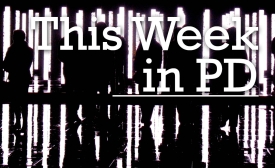digital diplomacy
In introducing Manzoni, Nefkens described the UK as a world leader in the “digital transformation of government”, a model even for similar schemes in the USA and Australia. Furthermore, New Zealand has used Gov.uk source code - it’s based on open standards and is open source - to help build out own digital services.
#GivingTuesday was born four years ago to encourage people to open their wallets for a good cause...Some critics think #GivingTuesday clutters people's inboxes with empty fundraising appeals…On the other hand, it's hard to argue with the results. Last year alone, #GivingTuesday pulled in a whopping $46 million in charitable donations…The event has expanded to countries like Singapore, Kenya and New Zealand.
Anonymous splinter group GhostSec has taken its “war” on Isis to the darknet, replacing a propaganda forum with an advert for Prozac. The site was only recently set up within the Tor darknet by Isis, allegedly in response to Anonymous taking down hundreds of the terrorist group’s websites on the open web.
Cohen suggested that despite the terrorist group’s comprehensive social media presence, it’s realistic for the U.S.to destroy it digitally. Specifically, he argued that the objective should be to marginalize the terrorists and push them to the periphery of the Internet.
The South African documentary, Miners Shot Down, on Monday night walked away with the International Emmy award for best documentary. The film covers the 2012 Marikana massacre when mineworkers in one of South Africa's biggest platinum mines began a wildcat strike for better wages. Six days later, the police used live ammunition to brutally suppress the strike, killing 34 and injuring many more.
Elio Alvarez and Lideisy Hernandez [...] joined the largest migration from their homeland in decades. Buying two smartphones for $160 apiece […] they plugged themselves into a highly organized, well-funded […] effort to make human traffickers obsolete by using smartphones and messaging apps on much of the 3,400-mile (5,500-kilometer) overland journey [...] to the U.S.
When one ISIS-affiliated channel was shut down by the Telegram app on Wednesday, another would pop up. [...] ISIS doesn't appear to rely on any one platform to communicate publicly and privately. But experts have noted a troubling shift, in particular, to Telegram.

PD News headlines focused on global reaction to the deadly terrorist attacks in Paris and the role of social media in public discourse.







